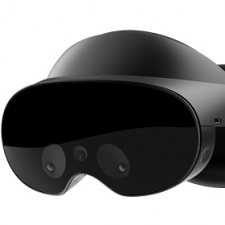With the Chinese market a must for any large-scale VR ambitions, Meta has been making manoeuvres to return to the region after a 14-year hiatus. In fact, ever since China banned international social media in 2009, cracking down on well-known Western platforms from YouTube to Twitter and, of course, Facebook, Meta lost a huge potential audience that it has been eager to reclaim.
CEO Mark Zuckerberg ha spent years attempting to schmooze Chinese officials but ultimately, Facebook has not seen a return to China while the country's own TikTok has become the rising social media star almost everywhere.
Now, Meta has finally found a way back into the country, but not via Facebook. Instead, Meta wants to sell its VR headsets in China, and it's Tencent that holds the key to re-entry.
It’s virtually a reality
Meta’s determination to make a success of it's ongoing VR strategy is heavily reliant on China, the global market leader with a massive potential audience. And with the VR industry still looking for its breakthrough moment, there’s still a lot to play for among competing brands all vying for the top.
And Tencent could prove a great partner for Meta not just thanks to their access to market, but also thanks to their own interest in virtual reality too. After a troubled 2022, however, the Chinese giant scaled back its VR investments and 2023 has been the year of AI rather than VR.
Yet, to the surprise of many, Tencent has reportedly rebuilt its VR team and has agreed to work with Meta to release headsets based on Meta tech in China, finally giving Zuckerberg a way back in. The deal will see Tencent become the exclusive seller of Meta’s headgear in the region with sales slated to begin in late 2024, although the agreement is still in its provisional stages and may yet change.
As for who gets what out of the deal, Meta is currently set to receive the biggest share of revenue from hardware sales while Tencent will supposedly take the bulk of the software subscription and game sales side.
Most notable in the plan is that while Meta has only just launched it's more powerful and more expensive Quest 3 to market, the deal with Tencent is to release a lower-priced, lower-quality version that should land somewhere between the Quest 2 and 3 in specs.
How receptive the fast-evolving Chinese market will be to a more affordable, downgraded headset - backtracking on Meta's improved spec, go pricey Quest 3 plans - will be key in Meta's ongoing 'quest' to finally convince the world to take AR and VR seriously. However, with a local powerhouse like Tencent backing it, both parties are giving the endeavour their best shot.





















